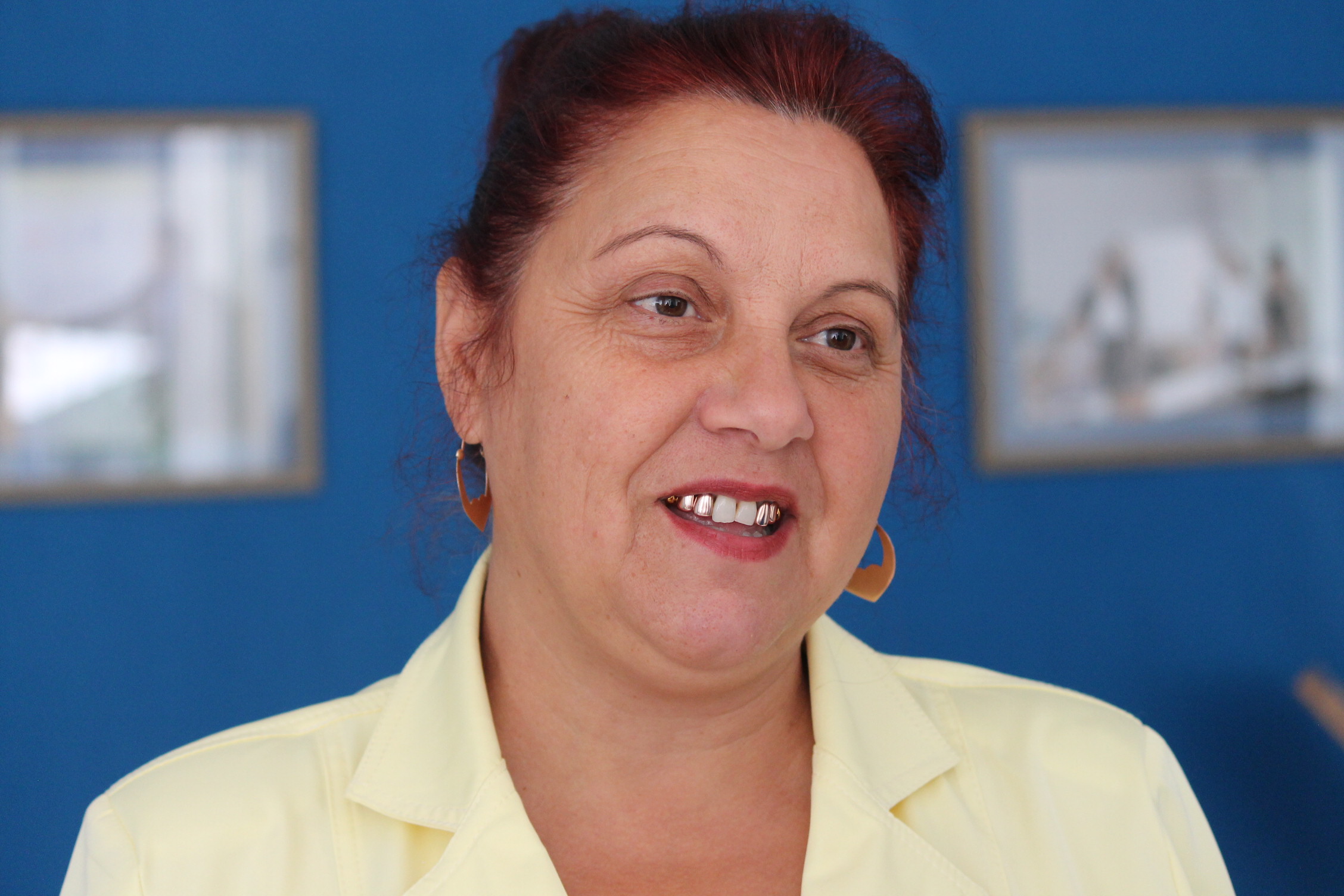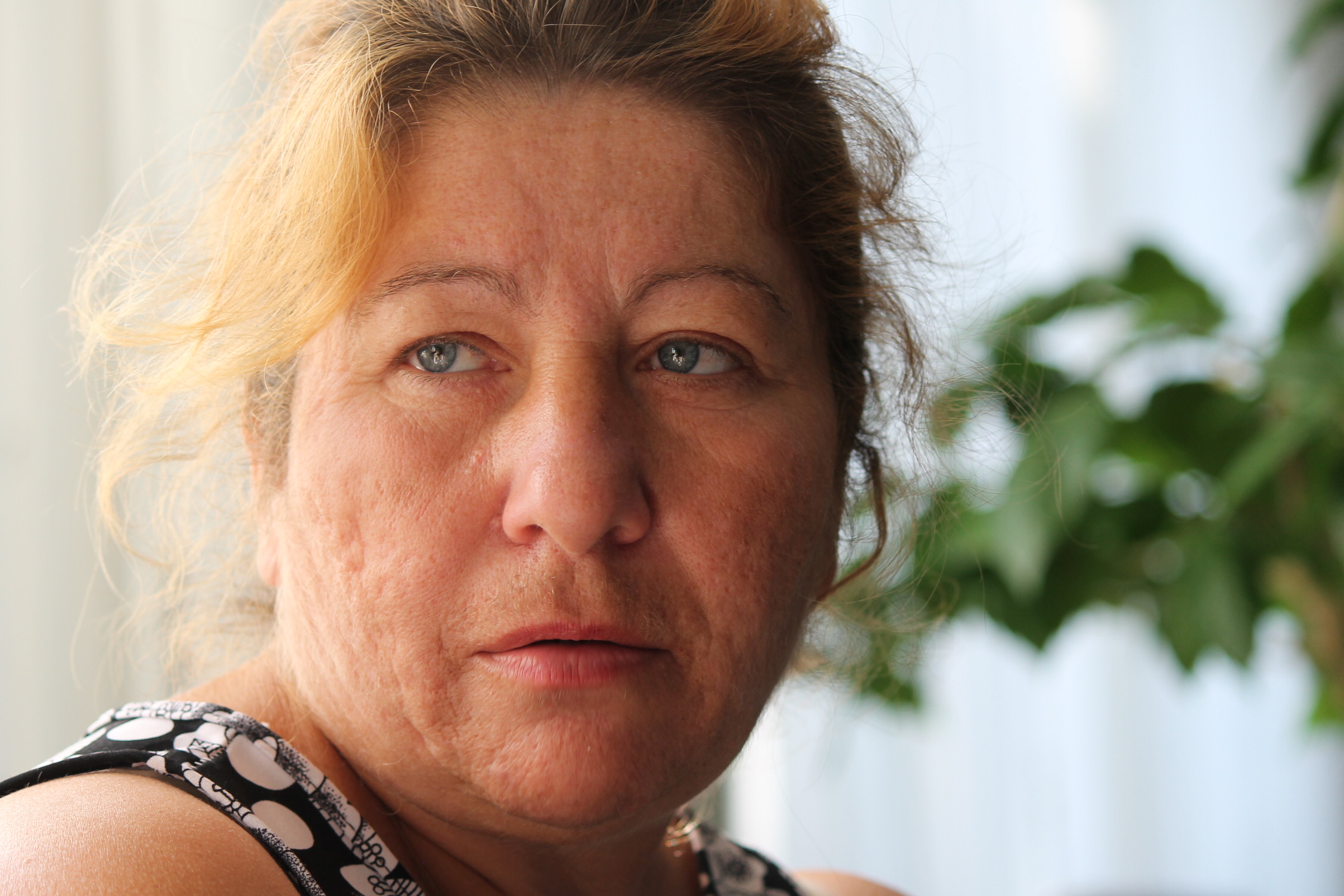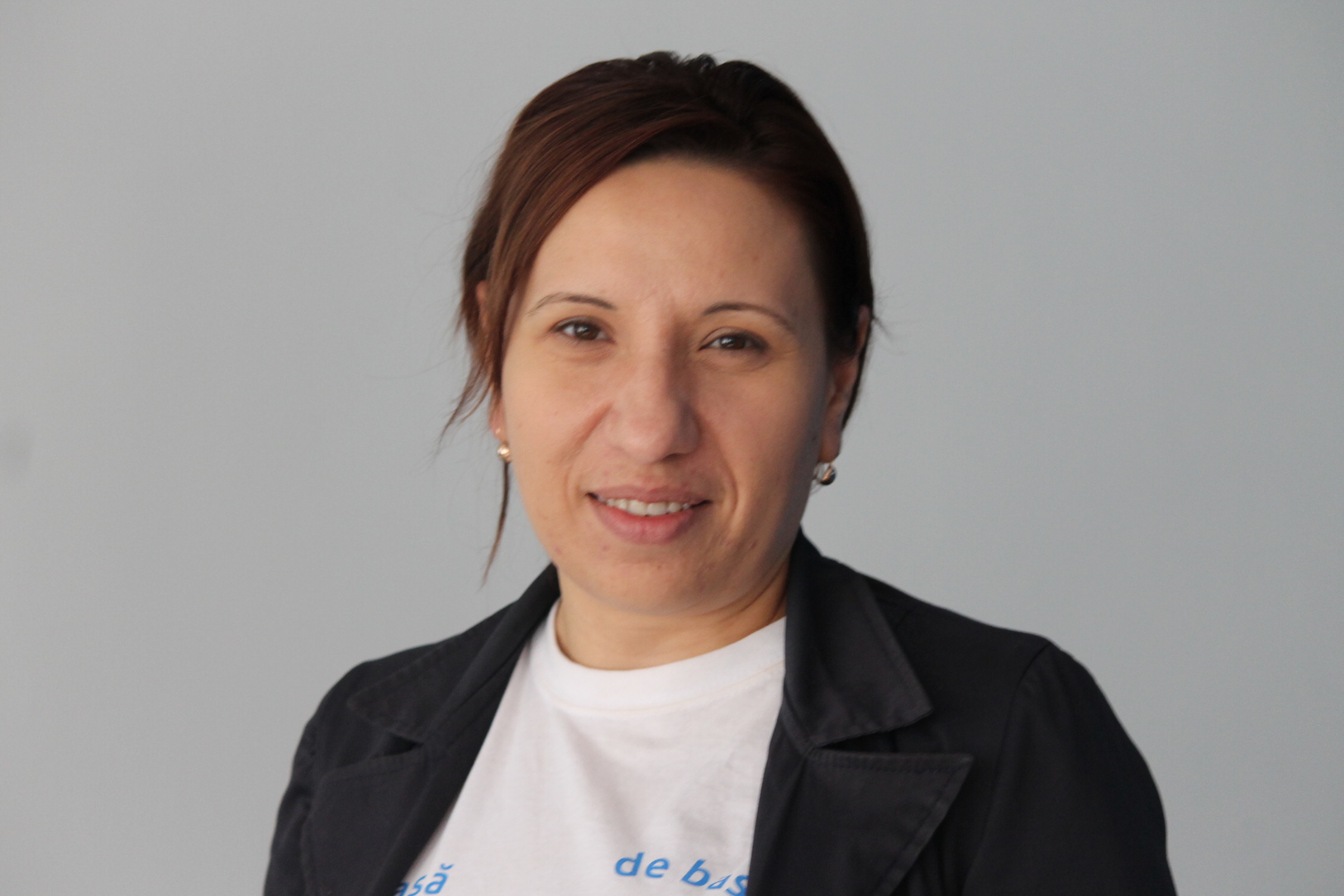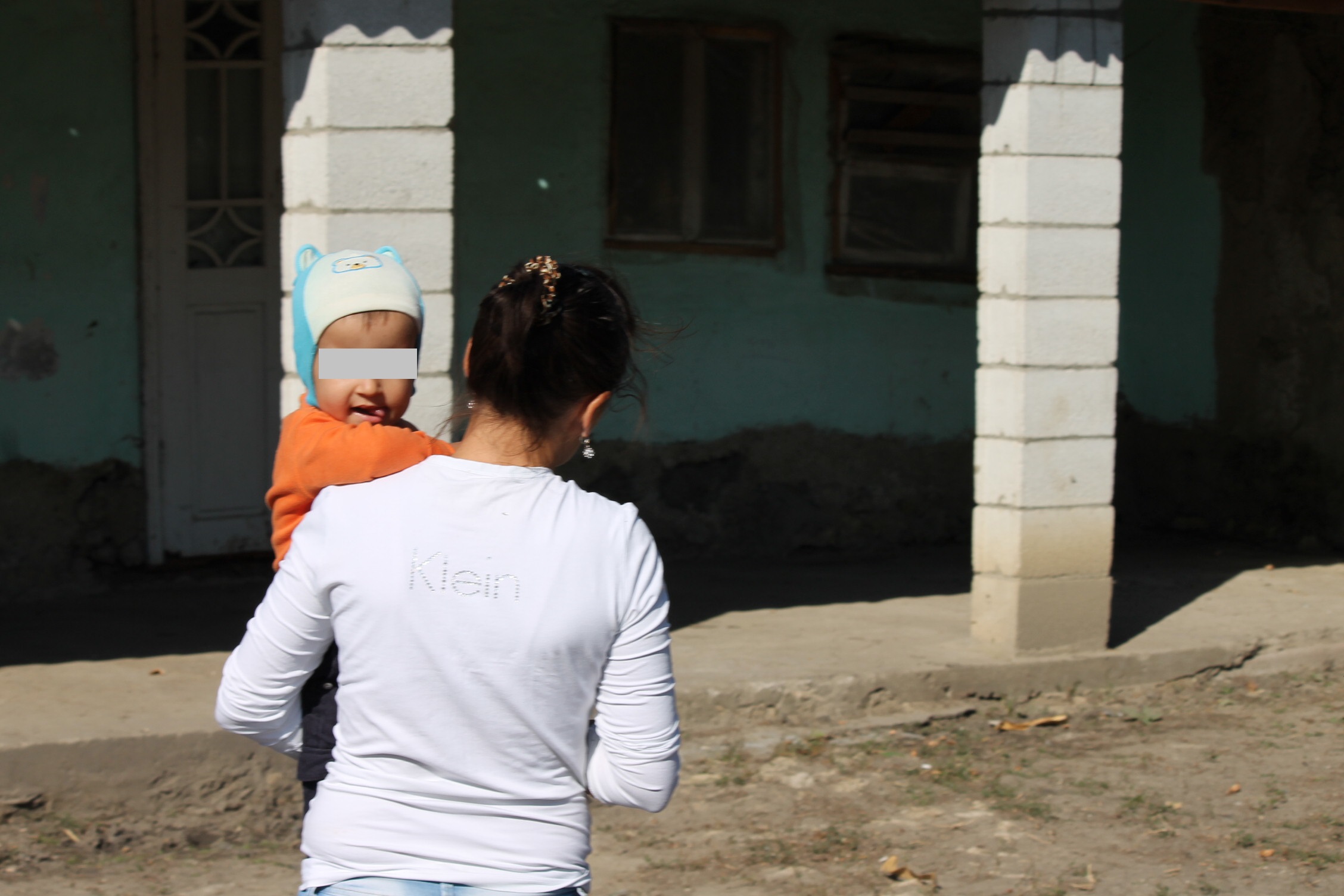Stereotypes and poverty close their way to school. Many Roma girls get married when they are teens and they abandon school. Most of them do not finish the 9th grade because they are forced to stay home and take care of younger brothers and household. The authorities do not have a clear solution for this problem, while specialists dealing with the needs of Roma - community mediators quit gradually many communities, because mayors do not have money.
„That is the tradition here, at Roma people...”

Eugenia got married when she was 17. "That's the tradition at Roma people. The girls marry early, they do not finish the ninth grade", says the woman. The mediator has 2 nieces who stay home, though they want to study. The two teenage girls went to school for a period of 2-3 years and then they did not learn because they went abroad with their parents.
"We want that Roma children go to school. They want to go to school, but they are ashamed because they do not want to study with children of small age", says the woman. She believes that the solution is a special educator who will teach them, reintegrate them with pupils and catch up with the school curricula.
But authorities do not have money to pay a community mediator. Eugenia Nenita is working as community mediator for almost two years but she was not remunerated. The reason - the mayor does not have money.
Girls’ schooling- a problem of the Roma communities
About 150 Roma people live in village Gribova, district Drochia. Natalia Radita has been activating as community mediator for more than 10 years, of which the past 2 years she gets a modest salary from Mayor’s office.
Roma people in village Gribova ask help whenever they have a problem. Also, the Mayor’s Office, police, the social assistant and other functionaries from the village ask for help when they 
The woman says that schooling of Roma girls is one of the biggest problems of the community:” It is a painful problem, including for me as mother and Roma person, as mediator. It is a problem for Roma children, especially for Roma girls to send to school. There are many reasons. One of them is that most often in families children do not have clothes or shoes to go to school; they do not have money to buy school supplies. Their mentality is not encouraging either”, says the specialist.
Though, currently, all children attend school in the village, there are many cases of chronic absenteeism. "Many children go together with their parents to work, especially in autumn and spring. Pupils in the 5th grade go to work by the day. When I say to mother that it is important to go to school, she tells me that they go together to work to feed all other children in the family. I often do not reply to such arguments", says community mediator.
The situation is worse for girls, they go to school only to 4th grade: "Girls get married at the age of 15-16. There are cases of very early marriages, when the girl turns 14; the wedding is organized 2 weeks later. Many girls do not attend the gymnasium. They must learn how to cook, how to do housework, take care of younger children, they are forced to assume the obligations of the adults. We insist that they should finish at least 9 grades".
According to a UN publication (2013) about Roma people in the Republic of Moldova:
Only 52% of Roma girls are enrolled in the primary education, against 84% of non-Roma girls and 55% of Roma boys;
Only 76% of Roma girls go daily to school against to 96% of non-Roma girls.
„I wanted to learn but I did not have a possibility”

„ In majority of cases, Roma boys continue their studies after gymnasium graduation. It is the tradition and the stereotypes that parents do not allow girls go to school in other institution far from their village. They consider that if they go to study and remain unattended, when they return home they will have less chances to get married because a Roma man will never marry a girl whom people speak bad things about”, says Silvia Feraru.
Each case of lyceum graduation by a Roma child is considered by Silvia Feraru as a great victory: „A boy graduated the lyceum, at my insistence. He wanted to leave after the 10th grade, but he continued his studies. Also, I had a case with a girl in the 9th grade, but I failed to convince her parents”.
Three Roma girls study currently in lyceum in Carpineni and Silvia hopes that they will graduate the institution and will continue their studies.
„It is very difficult to convince them but the situation is different now. Some of them realized the importance of integration and make an effort for integration. Others consider themselves discriminated and isolate themselves. If there are 2 Roma children in a classroom or group at kindergarten, they are always made to be together, by hand”, says the community mediator.
Silvia finished the 9th grade and did not continue the studies because „ the Roma community did not use to consider that the studies are important, as wherever they go, they do not need to be literate as everyone will call them tigani (gipsy, roma) etc”.
She did not have the possibility to study, though she graduated the music school, she learnt very well and wanted to study in Soroca: „Unfortunately, my parents did not allow me. I am so sorry. I sometimes feel that I am not discriminated based on ethnical criteria, but on criteria of education. I feel bad when some people say that they studied some activities but I did not”, said the girl.
The number of girls who graduate school is very small in Soroca
In Soroca, a town mostly populated by ethnic Roma, girls go to school less often than boys. "We are witnessing a growing number of schooled children compared with last year. Yet, not all children finish school, and chronic absenteeism appears in IV-V grades ", says Ghenadie Donos, head of the District Division of education, youth and sport, Soroca.
Vasile Bas, director of one of the biggest pre-university institution in district Soroca, lyceum „Constantin Stere” said that just one girl in the community graduated the institution, since he was designated director. “The girl studied very well and then went to study abroad”, he says.
A UN study on the situation of Roma women and girls in Moldova, carried out in 2014, shows the case of 4 Roma families in Soroca in which girls failed studies. Parents said that when they went to work abroad without their children, older girls take care of household and younger brothers. Therefore, they miss or abandon school. A Roma girl said: „I have never been to school. I stayed home and took care of home. Instead, her brother went to school systematically and intends to study at faculty.
Roma girls quit school earlier than boys

"If attendance is relatively good in primary school, in secondary school, statistics show a high level of abandoning, especially among girls. In average, Roma girls leave school 1-2 years earlier than Roma boys. This phenomenon has many reasons, such as early marriages, involving girls in domestic work to the detriment of education, early births. There are several reasons to be settled all together, not just by the Roma community. No one has absolved the state from its responsibilities to all its inhabitants, including Roma", said the expert.
Institution of mediator disappears
Institution of the community mediator, that was supposed to solve many problems of the Roma, disappears in Moldova. The authorities do not have financial possibility and sometimes no desire to maintain it.
Number of community mediators decreased almost twice compared with 2012. "Experts who are mapping the situation of community mediators say that there is a trend to call in question their existence in high number of settlements, even in villages where they are active. Only two mayors have confirmed that they would be willing to lobby the inclusion of community mediators for next year", said Veaceslav Balan.
According to the expert, currently, there are about 14-17 community mediators in the Roma communities in the country, of which only 10 of them get salary.

Exceptions among Roma people
Esmiralda Duminica is one of the Roma girls who studied in a college in the capital. Currently, she is a IV-year student and wants to start a political career after she graduates a faculty in Bucharest. Except the fact that she is a very good student, she does volunteering at an NGO specialized in Roma rights protection. Also, she works for a living.
„My parents allowed me to go to school, but when I was in the 9th grade, they told me: „You should stay home, Roma girls do not study”. I decided to continue my studies, I took my documents and came to Chisinau”, says Esmiralda.
documents and came to Chisinau”, says Esmiralda.
She did not believe that she would get a state paid scholarship and did not make any plan: „ I submitted documents and I returned home”. Some weeks later, I was informed by my colleague that I was admitted and she worried how to tell relatives about it.
„My mother and grandmother were not against my decision; they encouraged me to study as they did not have such a possibility. The attitude of men in the family was different: How will you stay alone, who will take care of you, there are many bad people etc...”
Unlike Esmiralda, majority of girls in her community graduated the primary school and then they went to work abroad together with their parents. Some parents try to marry their daughters as soon as possible, they follow the old tradition. „There is a perception that if you are a woman, you must not study, and you must stay home and take care of children and husband. That is all. You can’t go out with a friend”, says Esmiralda.
Even if she managed to break patterns, prejudices followed and still follow her but these made her stronger: "I have never hidden that I am a Roma girl, I still hear whispers as they pass through corridors in the dormitory. I do not suffer any longer, I amuse myself ... ". What really bothers her is that people make a clear difference between Roma and non-Roma. "I mean you can be Russian, Gagauzian, Bulgarian, Arabic, it's important that you are not Roma.... It is a stereotype in our society that if a person is Roma, this person is dirty, begs, reads cards", says Esmiralda.
 Another Roma girl Alvetina ruined 2 stereotypes by her example. Apart from the fact that she graduated the lyceum, the girl went to a college to study information technology, a specialty mostly for boys. Her success is due to diligence and examples in her family. Her father graduated medicine and her mother has always encouraged her to pursue her dreams, though she has finished 9 grades. Also, she was encouraged by Elena Sirbu presenter of the show "Petalo Romano" and her aunt, community mediator, Varvara Duminica.
Another Roma girl Alvetina ruined 2 stereotypes by her example. Apart from the fact that she graduated the lyceum, the girl went to a college to study information technology, a specialty mostly for boys. Her success is due to diligence and examples in her family. Her father graduated medicine and her mother has always encouraged her to pursue her dreams, though she has finished 9 grades. Also, she was encouraged by Elena Sirbu presenter of the show "Petalo Romano" and her aunt, community mediator, Varvara Duminica.
She is the only Roma student at the faculty and she wants to study political science in a year or two at University in Romania. „ Very many girls, who want to graduate school, are from vulnerable families. Another reason is distance to school and transportation, insufficiency of information because the young girls do not know opportunities. The last reason for unschooling and school abandon is the early marriages", says the young girl. She smiles when I ask her if she gets married: „It is too early for me, I did not live my life yet, I did not graduate the faculty, and I want to see my dreams come true. I will get married at the right time”, said Alvetina
Roma women and girls, among the most disadvantaged groups
A study on the situation of Roma women and girls from Moldova, conducted two years ago, shows that it is very difficult to obtain accurate information about early marriages in Roma families. This is because they are not officially registered. Studies show that when Roma girls marry early, the education process is disturbed and they are forced to renounce the childhood and think and behave like adults. Thus, they lose their chance to go to school and have a job.
A regional study on Roma carried out in 2011 reveals that Roma women and girls continue to be one of the most disadvantaged groups in Moldova. According to the research, nearly half of Roma women, aged 16 +, lack education and only 5% have secondary education or higher education.
The investigation was carried out within the project "Advocacy for Child Rights” implemented by the Center for Investigative Journalism (CIJM) with the support of UNICEF Moldova. The opinions are of the authors and editors and do not necessarily reflect the policies or views of UNICEF.
Comments